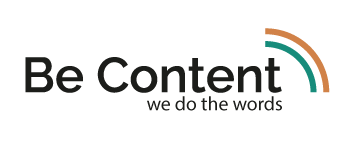Alison Smith, Director, Be Content
As a creative copy person, Brighton SEO is pretty heavy on the analytics and data crunching for my taste. But a free conference where you can soak up the latest digital insight sounded good and, as one speaker said: “Being able to speak the same language as your developers is never a bad thing.” This was Tom Bennett of Builtvisible, who gave a practical talk, sharing easy techniques for cutting your page loading speeds. Knowledge was pouring off the stage and the large crowd was lapping it up and scribbling furiously with styluses on their tablets.
In another presentation, Rob Bucci of STAT Search Analytics gave us a window on its in-depth research into featured snippets. A million SERPs were collected and analysed, to try to find out how best to break into the coveted box. The data was crunched, revealing, among other things, snippet frequency rates for different types of words: words to do with time, question words, process words, and subjective judgements. Seeing language broken down in this cold, scientific way made me feel a bit like an animal rights activist in a testing lab, but I held it down and paid attention.
Advice on copy was offered: “Slice up your copy with subheads, lists and tables. Well-structured page sections make it easy for Google to determine what content is relevant to a given search query.” Good web copywriters do this – but with the user in front of mind and the search engines as a secondary consideration. Putting Google before the human feels like putting the cart before the horse.
The geek level moved up a notch when Marcus Tober of Searchmetrics gave his talk against a backdrop of Star Wars slides, including a wonky Darth Vader (search gone bad) and the Millenium Falcon in hyperdrive (good). One counterintuitive piece of insight on page titles seemed to show that if you take out the keyword and just write an engaging title, the page can rank higher than it would if you’d left it in. This is encouraging for writers who’d rather not get tied up trying to give Google what it wants and just write naturally.
In the field of SEO, there seem to be a lot of companies throwing stuff at the wall and measuring what sticks, so they can tailor their output to throw more and more of the sticky stuff at the especially sticky spots. But it seems to me companies could save a whole load of time and effort by turning their gaze to who is doing the throwing and of what, before they even start with the measurement.
Does the person writing the words, choosing the pictures or making the videos have the good taste and skills to create or select something that will achieve that user engagement? Do they ‘vibe’ with your audience and speak their language? (No – I don’t know how you measure the vibe, but I’m sure someone will have a go.)
One analytics practitioner I spoke to celebrated the sneaky move of playing the Google trump card: ie, when your client complains that they’ve done and paid for everything that was asked, and they’re still not ranking well, you can say that Google is an enigma and they just need to keep trying – and paying.
SEO is vast, growing and open-ended industry, and no one person can be an expert at it all. This suits the sector’s interests pretty well, as brands will pay to access the expertise they believe will increase their findability. The future is arriving every day As Nichola Stott of theMediaFlow pointed out, pretty soon we’ll be making verbal requests into our phones for everything from flights to hotels, clothes, music and books. The arena is going to get more competitive as brands jostle for position in this brave new world. Some will rise to the top by virtue of their superb product quality, brand image and customer experience, but findability will be a crucial element in the mix. Still, the ultimate winners will be those companies who prove to have something worth finding.
Be Content is a team of copywriters with a journalistic background

Recent Comments